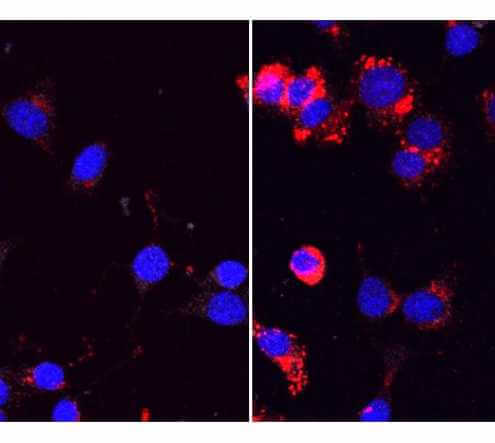University researchers have discovered an unexpected benefit in the aging process of cells, which encourages beta cells in the pancreas to work harder and produce more insulin

A new study in human cells and mice found that during the aging of beta cells in the pancreas, cellular function improves and insulin secretion is increased. This mechanism resulted in a significant improvement in the health of diabetic mice.
The findings were revealed in a study published in the journal Nature Medicine and conducted by Dr. Roni Hellman, a postdoctoral research fellow at the Hebrew University of Jerusalem under the guidance of Dr. Itai Ben-Forat and Prof. Yuval Dor from the Department of Developmental Biology and Cancer Research at the Institute for Medical Research Israel-Canada (IMRIC) at the Faculty of Medicine of the Hebrew University.
"It is common to think that cell aging leads to a decrease in their function, tissue aging and the development of diseases. Therefore, it was surprising to discover that when beta cells enter the aging process, the mechanism actually allows them to function better, not worse," explains Dr. Ben-Forat.
The researchers tested the activity of a gene called p16, which is known to activate the aging mechanism in cells. "Cell senescence" is actually a name for a controlled program that different cells in the body activate when they are exposed to damage or distress. When this program is activated, cells change their properties dramatically. Among other things, this mechanism prevents the cells from dividing and multiplying, and is therefore important in preventing cancer.
The activity of the p16 gene in pancreatic beta cells increases during normal maturation. This activity limits the ability of the beta cells to divide, which may contribute to the development of diabetes, since beta cells are the ones responsible for the secretion of insulin when blood glucose levels are high, and it is their absence or decreased function that causes the disease. At the same time, it was not clear how the activation of the aging program in the cells affects their very ability to function, that is, to secrete insulin in response to stimulation with glucose.
To their surprise, the researchers discovered that during the normal course of puberty, the activity of the p16 gene causes an improvement in the function of the beta cells and the secretion of more insulin in response to high glucose levels. They found that the aging program activated by this gene is the one that causes the cells to acquire properties that allow them to work harder.
When the researchers activated the aging program in the beta cells of mice that suffered from diabetes, this caused an increase in the levels of insulin secreted by the pancreas and a significant improvement in the health status of the mice. Even in cells isolated from a human pancreas and grown in a culture dish, activation of the aging program resulted in the production of high levels of insulin, indicating that this mechanism is shared by mice and humans.
The study indicates for the first time that during normal maturation the function of beta cells improves, at least in certain parameters. Also, it turns out that there is a kind of "trade-off" between the cells' ability to divide and regenerate and their ability to function better.
"The findings show that what we call 'aging' is actually a continuous process, starting with the 'maturing' process of the tissue, which improves the function of the cells and tissues at the expense of their regeneration potential. This has important implications for the way we think about the function and dysfunction of beta cells in diabetes," says Dr. Hellman.
This research discovery may have far-reaching implications in the understanding and treatment of diabetes. It is possible that drugs capable of causing cell aging and affecting their division, some of which are currently given to cancer patients, may also contribute to the treatment of diabetes. Also, targeted activation of the aging process may improve the function of engineered beta cells, which are currently being developed for transplantation in patients.
The collaboration in this study included researchers from the Israel-Canada Medical Research Institute at the Hebrew University School of Medicine; The Endocrinology and Metabolism Service from the Hadassah Medical Center; Vanderbilt University in Tennessee, United States and the University of Alberta in Canada.
(Photo credit: Dr. Roni Hellman)

2 תגובות
This section is a system bug.
The question is whether there is any interest in having an effective cure for this disease or whether there are those who benefit financially from the endless treatment of patients
currently
And why the hell is it so complicated to write a comment...what is the section of the site?